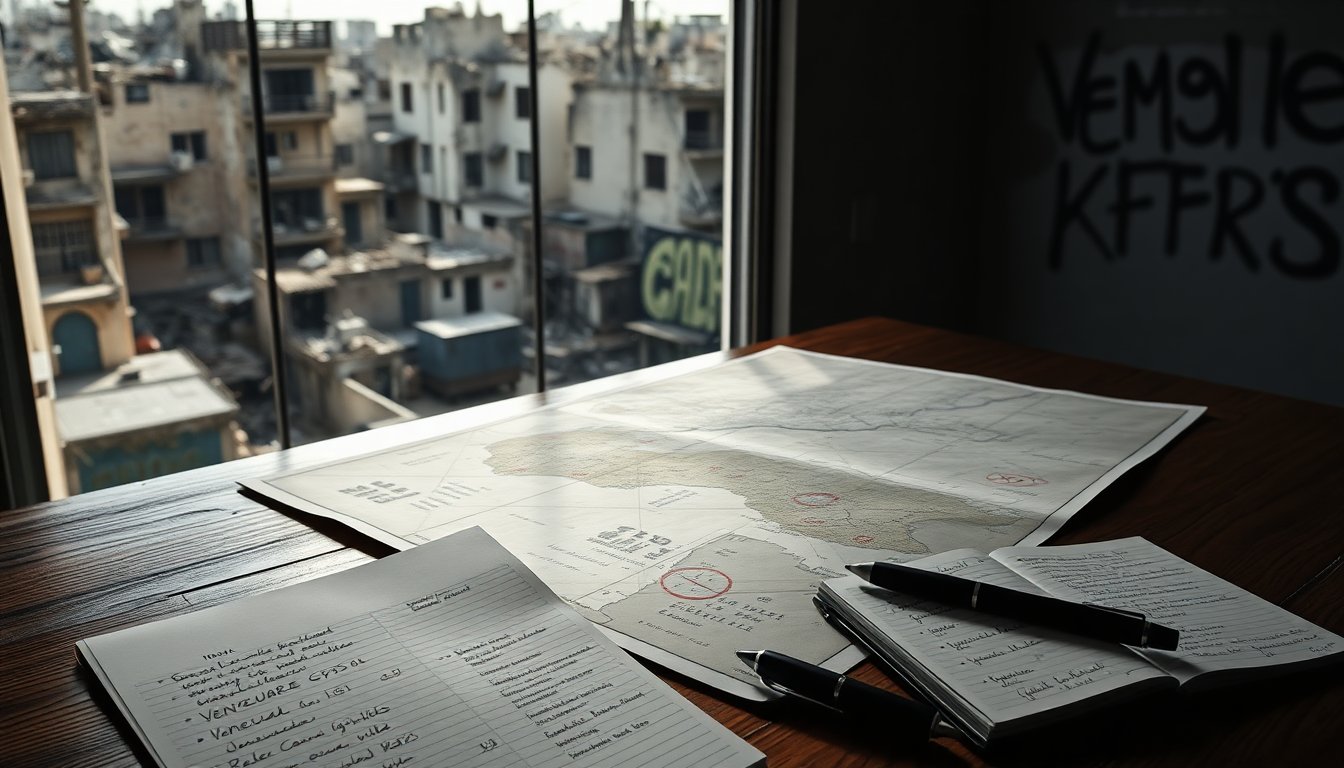Table of Contents
In a significant development, President Donald Trump has granted the CIA permission to conduct covert operations in Venezuela. This decision responds to the increasing threat posed by drug cartels operating in the country. As the situation in Venezuela worsens, the United States aims to strengthen its efforts against these criminal organizations.
The context of CIA action in Venezuela
The backdrop of the announcement by former President Trump is characterized by a significant rise in drug trafficking and violence in Venezuela. The nation has increasingly become a center for various drug cartels. These organizations have taken advantage of the country’s political instability and economic turmoil to expand their operations. The Venezuelan government’s struggle to manage these cartels has raised alarm internationally, particularly from the United States, which has been closely monitoring the evolving situation.
The role of the CIA
The Central Intelligence Agency (CIA) is integral to national security and foreign intelligence efforts. The agency is responsible for conducting covert operations that aim to protect U.S. interests worldwide, especially in areas where instability threatens American safety. Authorizing the CIA to take action in Venezuela reflects a more assertive approach to addressing the longstanding drug trade issues in the region.
Goals of the covert operations
The primary objective of these covert operations is to dismantle the networks of drug cartels that have established a foothold in Venezuela. By targeting these organizations, the U.S. aims to reduce the flow of illegal drugs into its borders, which has posed ongoing challenges for law enforcement agencies. Additionally, the U.S. government seeks to support efforts to restore stability in Venezuela, contributing to the alleviation of some humanitarian crises stemming from the prevailing turmoil.
Implications for U.S.-Venezuela relations
The authorization of CIA operations could have significant implications for the already strained relationship between the United States and Venezuela. Historically, Venezuela has resisted U.S. interference, often perceiving it as an infringement on its sovereignty. As the CIA engages in operations, tensions may escalate, leading to further isolation of the Venezuelan government on the international stage.
The response from Venezuela
In response to the U.S. actions, Venezuelan officials have condemned the announcement, labeling it an act of aggression. The government’s rhetoric has intensified, with leaders asserting that the country is under siege from foreign powers seeking to undermine its sovereignty. This hostile reaction highlights the delicate balance of power and the potential for escalation in the region.
The international community’s perspective
The international community is closely monitoring the situation in Venezuela as it develops. Numerous countries have voiced concerns regarding the potential for increased violence and instability, which could have widespread effects throughout Latin America. Some nations call for diplomatic solutions to address the crisis, while others advocate for interventionist measures to counter the growing influence of drug cartels.
As the Trump administration advances its plans, the effectiveness of CIA operations in Venezuela will be under scrutiny. The success of these operations will hinge on the agency’s ability to navigate the complex political landscape, achieving its objectives without exacerbating the conflict. The situation remains dynamic, and the implications of these actions are significant.
The authorization for the CIA to conduct operations in Venezuela by the Trump administration represents a significant shift in U.S. foreign policy. This decision responds to the challenges posed by drug cartels while raising questions about regional stability and international relations. The developments in the coming months will be pivotal in assessing the effectiveness of this strategy and its repercussions for the Venezuelan population.


